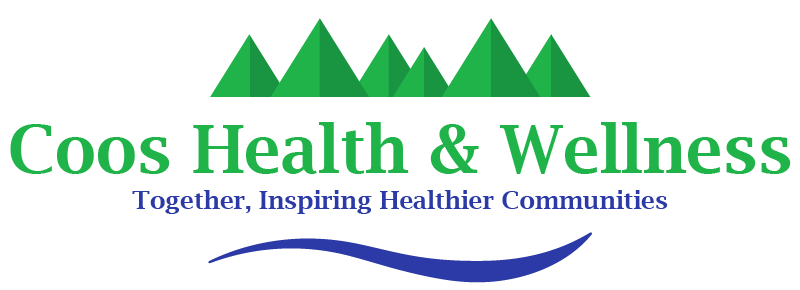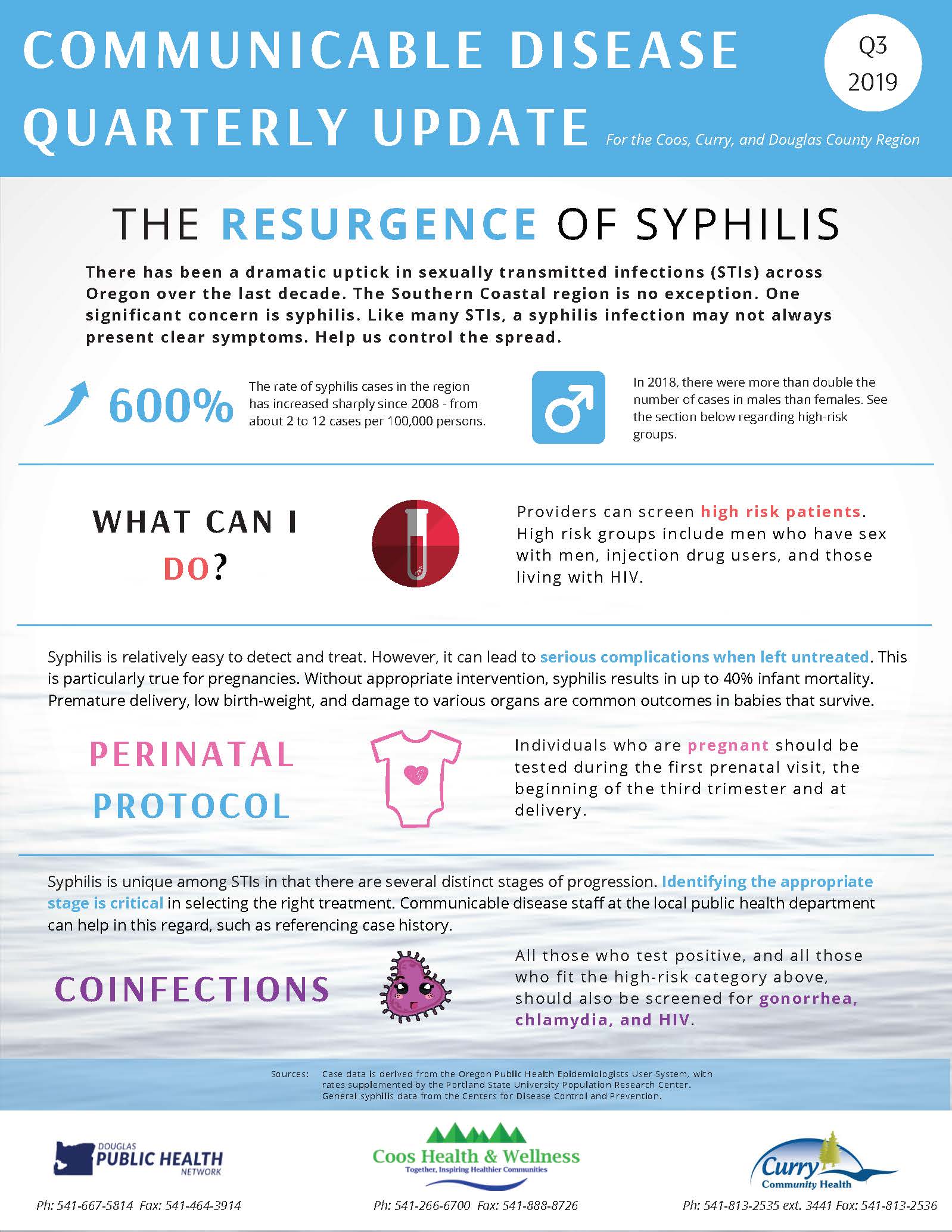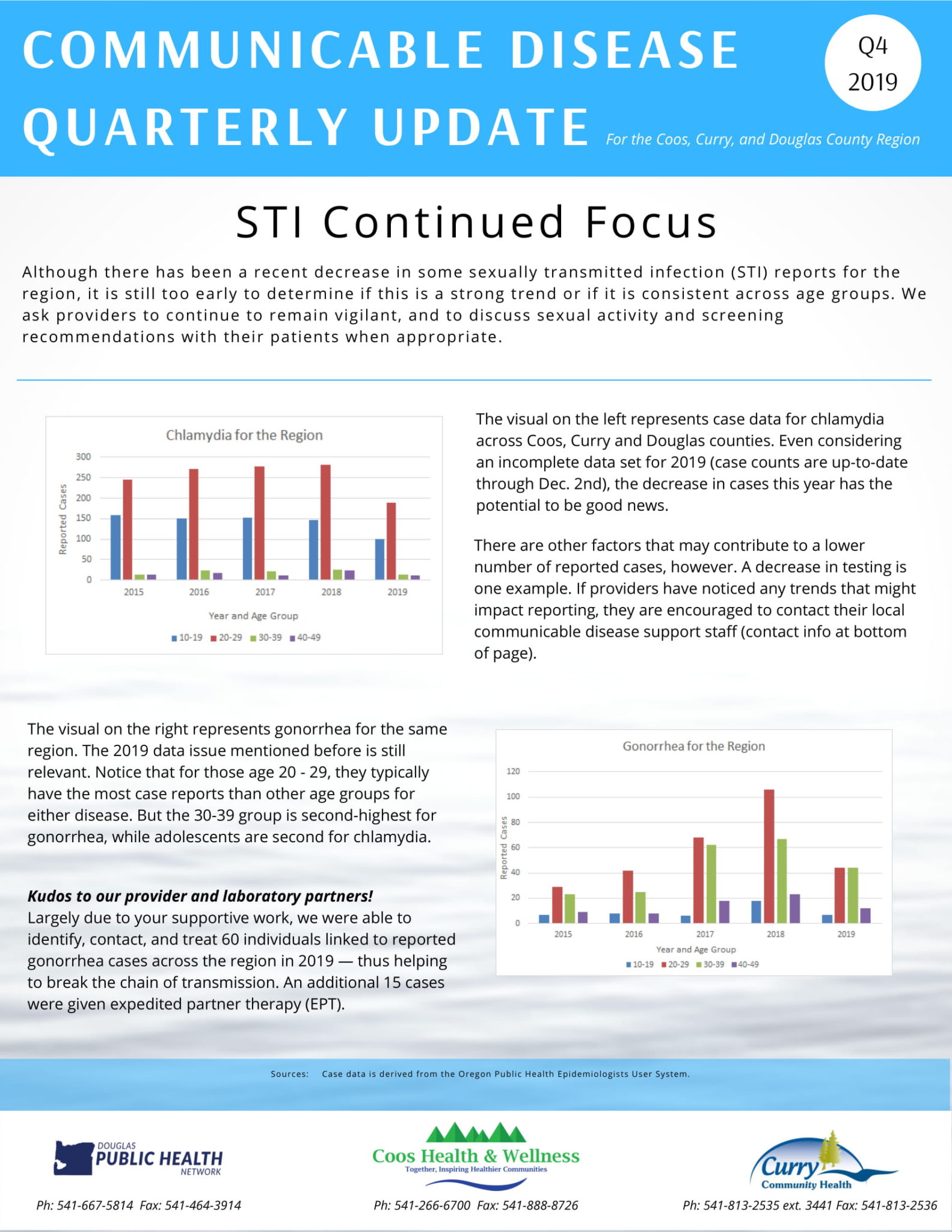Communicable diseases are infectious conditions that can be spread to others through contact with infectious body fluids (e.g., mucus, blood, feces, sexual body fluids). Disease can be spread by touching or by airborne droplets (coughing, talking, or sneezing), by ingesting contaminated food and water, or by transmission through insects or animals.
The Health Department staff track communicable diseases to help:
- prevent disease outbreaks;
- provide lab tests to check for some infections;
- provide immunizations to prevent infection;
- provide exams and medications for certain diseases;
- provide education to individuals and the community to improve and protect health.
Our communicable disease clinic program includes:
- Communicable disease reporting and investigation
- Food borne illness reports
- Animal bite reports
- Reporting – How to for Health Professionals
- Immunizations for children and adults
- HIV tests and counseling to reduce risk of infection
- Tuberculosis testing and case management
- Sexually transmitted disease – exams and treatment
- Other Communicable Disease lab tests
- Immigration lab tests
- Hepatitis titers
General Information
Information on Ebola
Information on MRSA
- Fact Sheet on MRSA
- MRSA Info for Schools
- MRSA Information for Coaches, Athletic Directors, and Team Healthcare Providers


